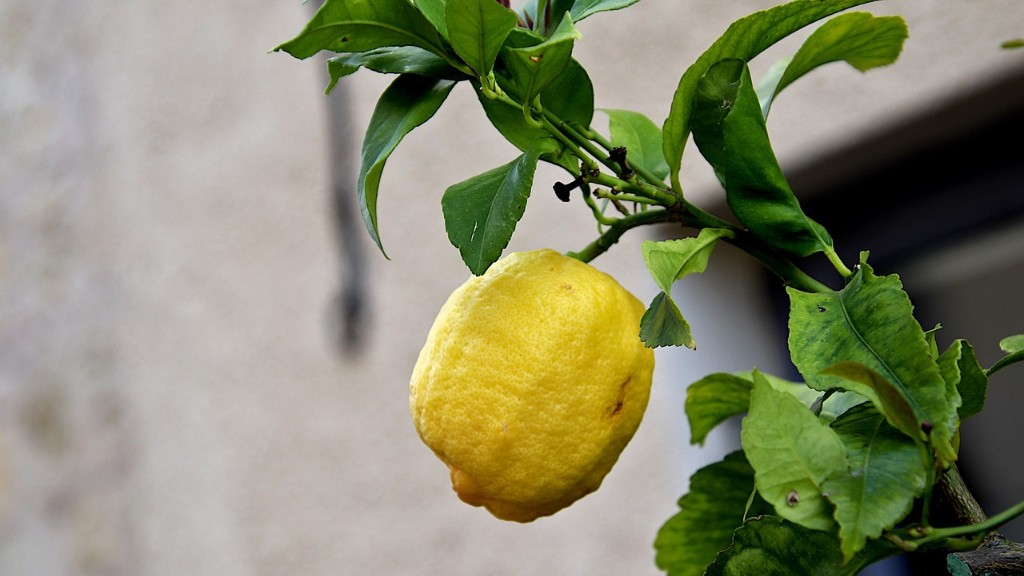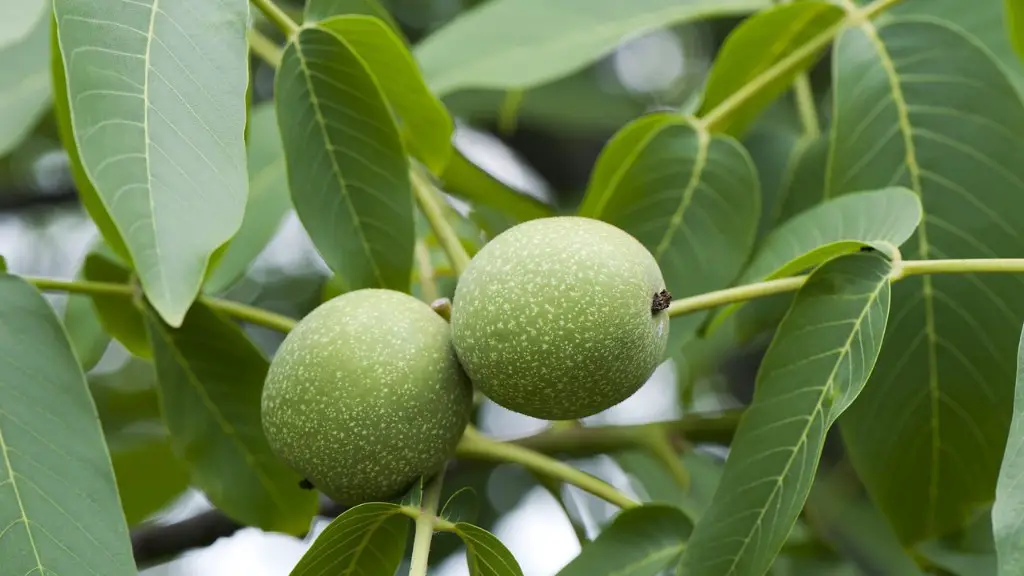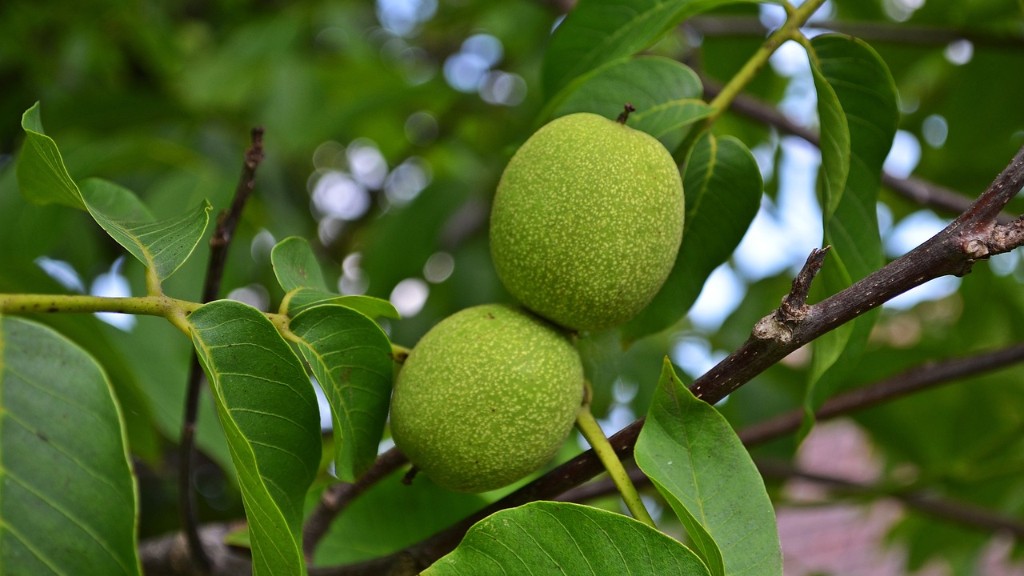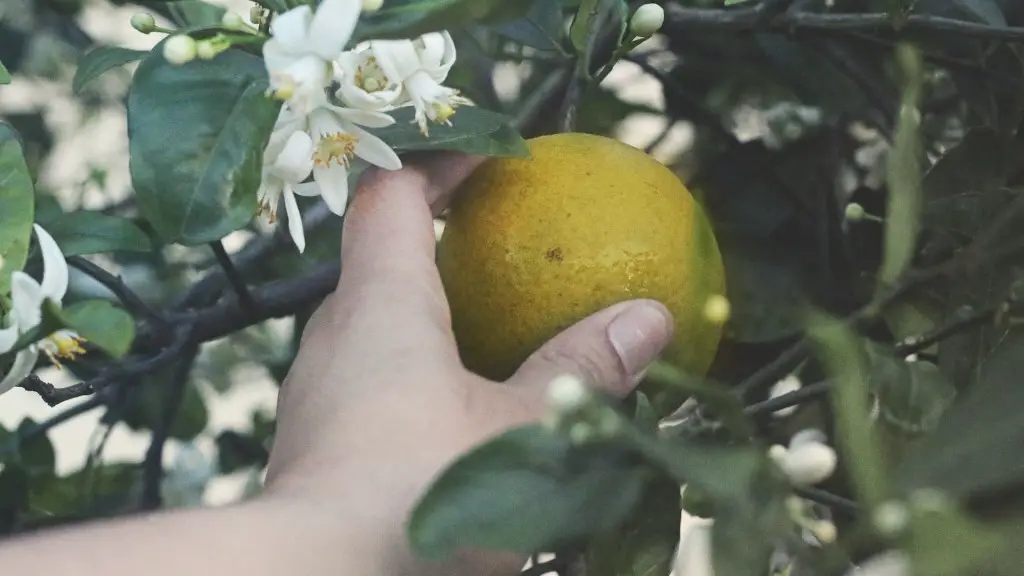Aphids are one of the primary pests that can cause damage to your lemon tree, so it is important to take the necessary steps to get rid of them as soon as possible. Here are some of the best methods to help you get rid of aphids on your lemon tree.
The first method is to introduce predator insects such as ladybugs to your garden. Ladybugs are natural predators of aphids, so they can help in reducing infestation. To attract them, you can place powdered sugar around the base of the tree. It may also help to increase the population of beneficial insects like syrphid flies, parasitic wasps, and lacewings, as they also feed on aphids.
Another way to get rid of aphids is to use insecticidal soap. This is a safe and easy to use way to kill aphids and other soft-bodied insects. However, it is important to note that insecticidal soap will not kill the eggs of the aphids, which means that you will need to reapply the solution in order to prevent re-infestation.
Horticultural oil is an effective method to get rid of aphids on citrus trees. Not only does it act as a suffocating agent for adult aphids, but it also helps to eradicate their eggs. However, it is important to follow the instructions carefully when using horticultural oil, as it can cause damage to the leaves if not applied correctly.
An additional way to eliminate aphids on your lemon tree is to use homemade solutions. A common homemade solution is to mix water and liquid dishwashing soap in a spray bottle. This can be sprayed directly onto the aphids and is an effective method of killing them. It is important to note however, that while this is an effective method of killing the adult aphids, it won’t kill the eggs.
Finally, you can use Neem oil to get rid of aphids. Neem oil is a natural, botanical insecticide which is effective at controlling pests and can also help to deter new infestations. It is safe to use on your lemon tree and can easily be picked up from your local garden center.
Biological Controls
The use of predator insects is the most common form of biological control for aphids. Ladybugs and other predatory insects can help to control the aphid population on your lemon tree without the need for applying chemical pesticides. Encouraging the presence of beneficial predators in your garden can help to reduce the aphid population and prevent further damage to your trees.
Harmful nematodes, such as Steinernema feltiae, are another form of biological control that can be used to help reduce the aphid population on your lemon tree. Nematodes are microscopic worms that feed on the larvae and eggs of aphids, making them especially helpful in controlling aphid populations. They can be applied directly to the soil around your lemon tree and will help to keep the aphids from getting established or re-establishing themselves.
Encouraging healthy soil and ensuring the tree’s environment remains optimal for the beneficial insects is a great way to keep the aphid population under control. Try not to disturb the soil too much and use compost to help keep the soil moist, allowing beneficial insects and other life forms to thrive. This will help to keep the aphid population at bay.
Chemical Controls
Insecticidal soaps and horticultural oils are the most commonly used chemical methods to get rid of aphids on citrus trees. These products can both be used to help get rid of the adult aphids, but they won’t be able to tackle the eggs, so re-applications might be necessary in order to prevent further infestations.
In certain cases, chemical pesticides can also be used to control the aphid population. It is important to ensure that you choose a pesticide that is specifically designed for use on citrus trees to ensure that it won’t cause any damage to the plants. Additionally, it is important to use the pesticide according to the instructions given. Failure to do so could result in an ineffective treatment or even cause damage to the plants.
For areas with extreme infestations, it may be necessary to use contact sprays or dusts to quickly get rid of the aphids. These products are sprayed or applied directly onto the aphids and provide a more targeted control method compared to insecticidal soaps or horticultural oils.
Avoiding monoculture farming and crop rotation can also help to prevent aphid infestations on citrus trees. Monoculture farming can make it easier for the aphids to establish themselves and difficult to control, so by opting for rotation, you can reduce their chance of infesting your lemon tree and make it easier to get rid of them in the future.
Preventive Measures
One of the best ways to prevent aphid infestations is to ensure that your lemon tree is strong and healthy. This means providing it with adequate sunlight, water, and regular fertilizer and pruning. Additionally, it is important to regularly inspect the tree for any signs of infestation and take the necessary steps to treat the problem if you spot any.
It is also beneficial to promote the presence of beneficial insects like ladybugs, syrphid flies, and lacewings in your garden. This can be done by planting a variety of flowers and other plants that attract these helpful creatures. Similarly, providing them with food and water sources such as constantly-flowing water sources, sugar-water, and dried fruit can help to maintain healthy numbers of beneficial predators in your garden.
As different kinds of aphids have different life cycles, the timing of spraying your lemon tree should be based on the specific species infesting your tree. It is important to be aware of the time that they are most likely to be present, so you can apply the necessary treatment at the right time.
You can also protect your lemon tree from aphids to a certain extent by introducing natural repellents like garlic or pepper spray. These solutions can help to stop aphids from infesting your tree, but will not eliminate the existing infestations.
Physical Methods of Control
Physical removal of the aphids is a simple and effective method to get rid of the pests on your lemon tree. Removing the aphids by hand or using a vacuum is a great way to reduce the population and doing this regularly can help to keep the problem under control. However, it is important to be aware that some of the eggs of the aphids may still be present after removal, so re-inspections are necessary.
Another physical method of getting rid of aphids is to use trap plants. The idea behind this method is to use plants that attract large amounts of aphids and then remove them with a vacuum or by hand. This can be an effective way of reducing the population, as the aphids start to concentrate on the trap plants rather than the lemon tree.
Citrus-based sprays can also help in the physical removal of aphids. These sprays produce a foam covering that smothers the aphids on contact and help to reduce their numbers. They can easily be purchased from your local garden center and will be effective in helping to control the population.
Finally, you can also use sticky traps to help in catching aphids. These are easy to set up and can be a great way to reduce the population. The traps work by attracting the aphids through different colors and smells and trapping them with a sticky material. This method is especially effective in combination with other methods, as it can provide quick results in reducing the aphid population.



